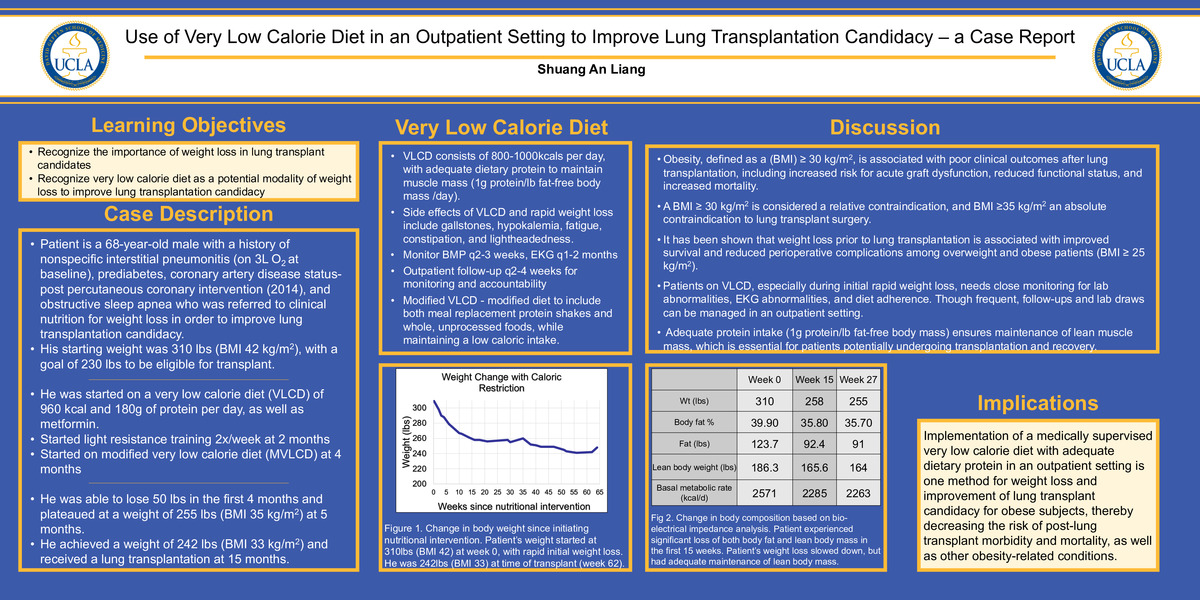-
Author
Shuang An Liang -
Co-author
-
Title
Use of Very Low Calorie Diet in an Outpatient Setting to Improve Lung Transplantation Candidacy – a Case Report
-
Abstract
Obesity, defined as a body mass index (BMI) ≥ 30 kg/m2, is associated with poor clinical outcomes after lung transplantation, including increased risk for acute graft dysfunction, reduced functional status, and increased mortality [1]. A BMI ≥ 30 kg/m2 is considered a relative contraindication, and BMI ≥35 kg/m2 an absolute contraindication to lung transplant surgery [2]. It has also been shown that weight loss prior to lung transplantation is associated with improved survival and reduced perioperative complications among overweight and obese patients (BMI ≥ 25 kg/m2) [3]. However, weight loss is difficult to achieve even for relatively healthy subjects, let alone for patients who experience chronic hypoxemia and reduced exercise tolerance [4]. We report a case of implementing a very low calorie diet in a supervised outpatient setting to improve lung transplant candidacy. The patient is a 68-year-old male with a history of nonspecific interstitial pneumonitis (on 3L O2 at baseline), prediabetes, coronary artery disease status-post percutaneous coronary intervention (2014), and obstructive sleep apnea who was referred to our clinic for weight loss to improve lung transplantation candidacy. He presented at a starting weight of 310 lbs (BMI 42 kg/m2 with 39.9% body fat and 186.3lbs lean muscle). He was started on a very low calorie diet of 960 kcal and 160g of protein per day, as well as metformin. He was able to lose 50 lbs in the first 4 months and plateaued at a weight of 250 lbs (BMI 32 kg/m2, 35.7% body fat and 164lbs lean muscle) at 10 months. He was placed on the transplant list and received a lung transplantation at 15 months. Implementation of a medically supervised very low calorie diet with adequate dietary protein is one method of weight loss for improvement of transplant candidacy, thereby decreasing the risk of post-lung transplant morbidity and mortality, as well as other obesity-related conditions.
-
College
PCC
-
Zoom
-
PDF

